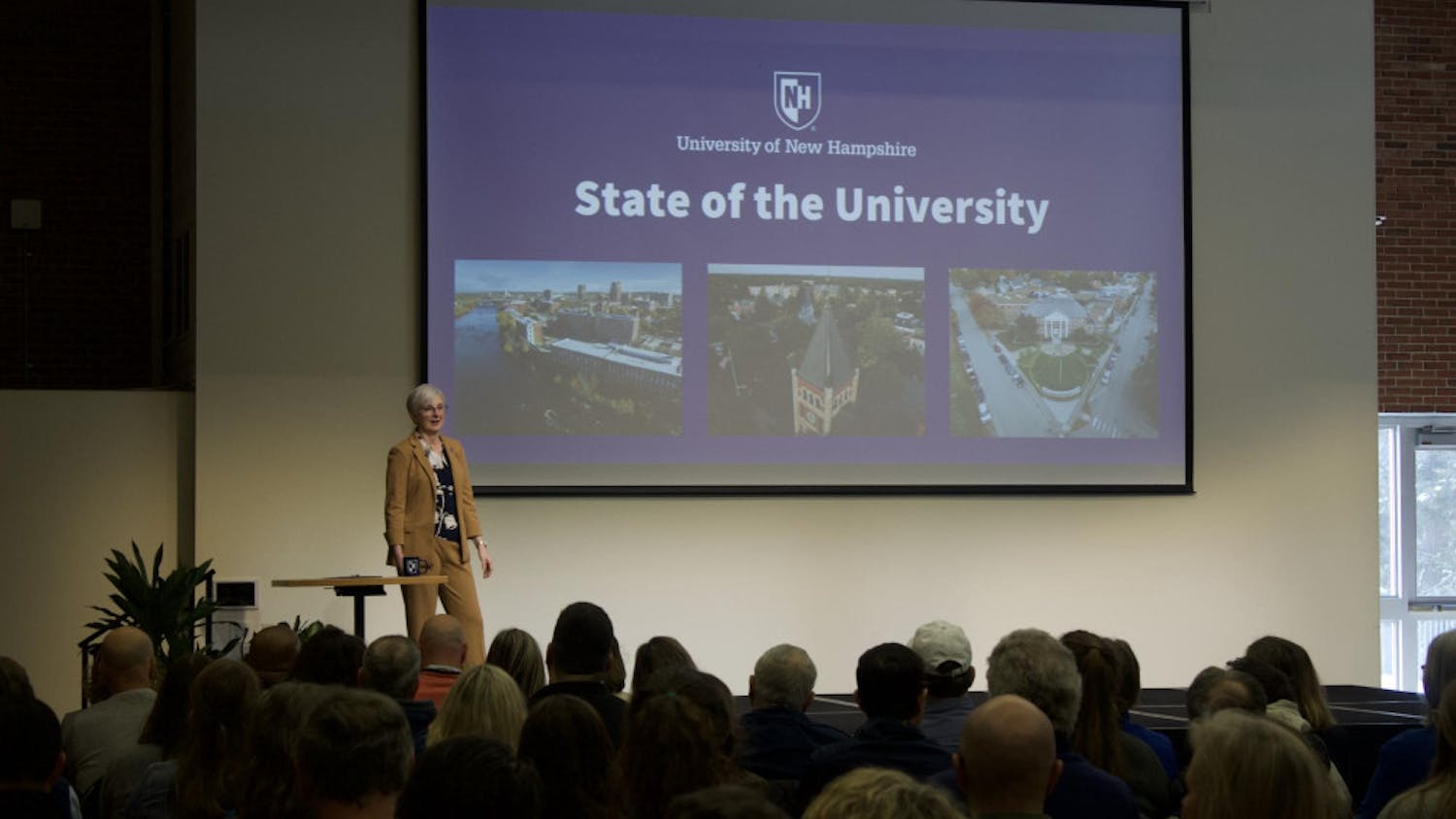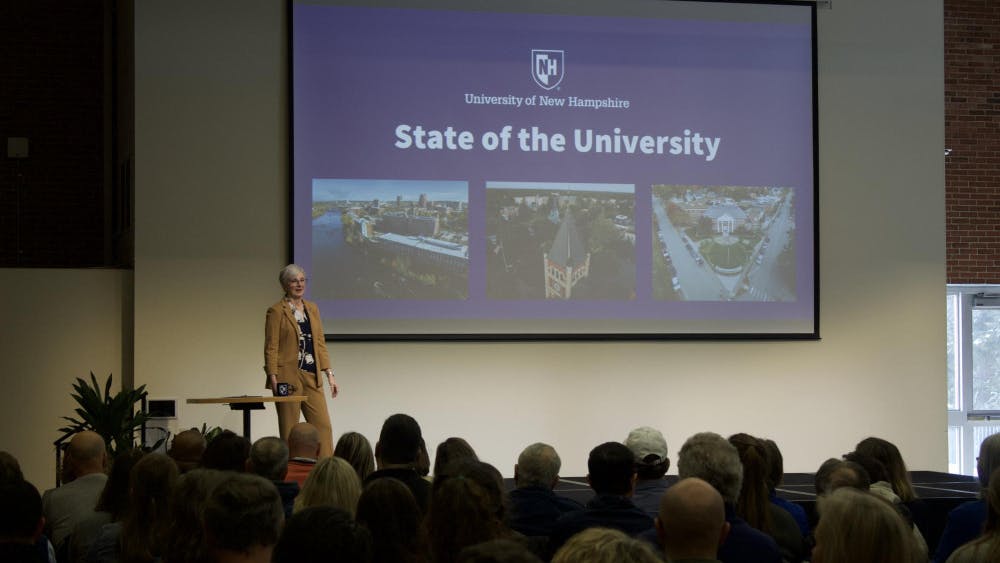UNH Professor Jaed Coffin introduced his peer Tom Haines at a Faculty Fellow Talk titled “Walking to the Sun: A 21st Century Journey” on Thursday, March 23, by saying that Haines has been writing his upcoming book, “Walking to the Sun,” his entire life. This isn’t far from the truth. Haines has been a travel writer for decades and this September he will turn in his final draft for publication.
Haines recently returned from the Texas Panhandle region where he slept at a windmill farm. The windmills there go about 80 meters high and produce enough electricity for tens of thousands of households in the state of Texas. This has been Haines’ life for years now. He’s been trekking across the country to find where fossil fuels and renewable energy are making their impact both environmentally and economically.
I spoke with Haines about his upcoming book and the fight against climate change.
TNH: Was the driving force behind the book a sense of insularity we have as consumers of energy— how removed we are from the process of knowing how homes are fueled and things like that?
Haines: It was a lot of different things, but I do think the driving motivation was the insularity. I think we all live in and enjoy this industrial world, and for me I feel like there’s this big disconnect. We almost can’t get our heads around our own involvement. My basement has a furnace that produces energy for my household, but I never see where it comes from and so going to these places was to try to reconnect on a personal level… It all comes back to the over-insulation of living in an industrial world. The project was about the reconnection to the problem we face, but also land and to nature.

TNH:Do you think the travel writing aspect helped your book, instead of being too scientifically or economically driven?
Haines:I do try to bring in scientific information. There are parts where I talk about climate change or economics, but to me, the travel, movement and going to the source was key. The bottom line is that there’s a lot to be learned and understood at ground level. For an average person, to read more reports about climate change or explanations about what’s happening to earth, is totally useful and important, but I think this book is meant to be much more of an experience for a reader. To see what’s involved in the fossil fuel industry, learn about some characters and see a ground level experience because frankly that’s what I like to do.
I think another big piece of the walking aspect was to put myself in nature. There were some days when I was in the middle of nowhere, slogging along thirsty and hot, but it makes me much more aware to the place. When I was in Maine, I knew I was in Maine; I was on the coast. It was windy and I watched the tide go in and out. In Wyoming, I was on the prairie and there are rattle snakes and stuff. Had I been in a car or a machine, that’s another level of insulation. So walking was a big piece of breaking through that insulation.
TNH: Do you see a transformation going on in yourself after these trips?
Haines: Definitely. I think the bottom line, personally, just having had those experiences, I’m much more in tune with how much I consume. So it might just be like turn off the lights, drive less often, reduce, reuse, recycle; my point being like even right now I’m in my office and it’s sunny so I don’t have my lights on. I know it sounds like a silly little thing, but I know that the power needed for those lights is coming from some power station, which runs on coal and gas running from places I’ve visited. Part of it is psychological, I’m just more tuned into it what I do…I think of this book as a kind of social act. I hope it is informative and provocative for other people… My book is about the cultural and social shift at a larger scale, that we need to be investing in renewable energies at a big, big level.
TNH:Has the mood changed since Trump got into office? In terms of the direction the country is now going, investing more in fossil fuel and denying climate change, at least at a federal level.
Haines: It was business as usual at the ground level. I was at the Panhandle of Texas and windmill development was driven by business decisions that were already made. But as an observer, what this project has shown me is that we need to move as fast as possible in dealing with climate change. Any administration that doesn’t do that means that we’re losing time and we’re making the problem worse. Political parties are going to fight about it and waste time.

TNH:How planned out were your trips? Did you just go into these places?
Haines: I have a lot of experience as a reporter doing this. I go to an oil rig or a windmill farm, but I do research beforehand and I’ll read about it and make a few phone calls. I make sure I’m not going to get someplace and find out it’s been a long hike. I go into it and I’m always confident I’ll find a story but I don’t know what that story will be. This way the story is defined by these places and not by me… a lot of the content is defined by the nature and what I see.
Tom Haines is an award-winning travel writer and has reported from over 40 countries. He’s worked for The Boston Globe and has published works in The New York Times and The Atlantic, among other major publications. “Walking to the Sun” is set to be published in the summer of 2018 by ForeEdge, the trade imprint of University Press of New England.











